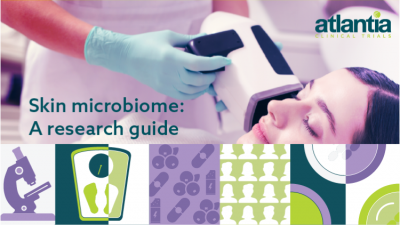Promotional Features
The rise of food clinical trials: How companies are validating their products to increase sales
Clinical trial data is an increasingly valuable resource for food, beverage and supplement companies. Amid rising consumer skepticism about advertising and regulatory demands to substantiate claims, companies need to validate the health effects of their products in rigorous clinical trials to compete and increase sales. These forces are driving manufacturers to embark on clinical trial programs with the support of full-service contract research organisations (CROs).
By performing randomised human clinical trials, companies can generate proof-of-efficacy data that scientifically validates their products and ingredients. Whether used for marketing or health claims, clinical data serves as a sales tool to differentiate a company’s product from competitors and thereby increase sales.
Producers of food, probiotics, infant formula and everything in between have long had the option to differentiate their products using clinical data. Today, a growing number of companies are taking that path.
In 2018, sponsors registered 37% more clinical trial protocols featuring the word “probiotic” on ClinicalTrials.gov than they did in 2016.1 Similar trends are evident in other part of the food industry. Over the first five weeks of 2019, sponsors filed more protocols that featured the term “functional food” than in all of 2008.2
The increases in clinical trials cover a period in which consumers have simultaneously become more health conscious, distrustful of advertising and demanding of evidence. These factors have created a big market opportunity but also made it harder for companies to persuade consumers of the merits of their products.
Why food companies conduct clinical trials
The opportunity stems from consumers’ interest in health-promoting products and willingness to pay a premium for them. One study found giving consumers information about the functional properties of a blueberry beverage made them more likely to want to buy the product.3 Another showed people will pay a 65% premium for snacks with functional properties.4
Advertising can help show products justify price premiums but its power has been constrained and diminished. A 2017 Ipsos Connect study found 69% of people distrust advertising.5 Almost half of people said they trust advertising less than in the past.
Equally, regulators are coming down hard on companies that make unsubstantiated claims. In the US, companies that fail to provide Food and Drug Administration (FDA) with evidence to support claims about the effect of products on the structure or function of the human body face penalties. Across the Atlantic, the European Food Safety Authority (EFSA) requires scientific evidence to substantiate all claims made on labels.
Animal studies, while being important in the early assessment of novel ingredients, are unable to provide the data regulators require. Rather, EFSA and FDA’s positions reflect the fact that randomised human clinical trials are the best tool science has to show causal links between products and health outcomes.
To convince regulators, randomised trials must use suitable outcomes, study populations, controls and actions to reduce bias. This is a challenge littered with small decisions that have big consequences, as is shown in EFSA’s decisions to ignore data from trials that use certain control interventions.6
Sponsors run other types of human research, such as observational and acute studies, to generate useful data earlier in development without taking on the full burden of randomised trials. Yet, even decisions made early in clinical development are critical. For example, sponsors must use the same dose and dosage form throughout development if they want regulators to accept all their data.
Faced with these challenges and the high cost of failure, large food and supplement companies are hiring clinical program managers, regulatory professionals and people with experience running trials in the nutraceutical industry. At the same time, nutraceutical companies have begun to apply their clinical development skills to the over-the-counter sector.
These actions have led to the proliferation of clinical data, making it hard for companies to compete if they lack evidence of the effects of their products in humans. Faced with these pressures, small and large companies alike have turned to full-service CROs for help navigating the technical world of food clinical trials.
How to choose a CRO
Outsourcing clinical development to a service provider frees companies from the need to establish in-house capacity outside of their core competencies. However, this approach will only pay off if a suitable service provider is selected.
This is a critical decision. Clinical trial data can enable companies to capture market share and charge premium prices, but companies must invest time and money to generate the evidence that unlocks these opportunities. This investment, like all outlays, exposes the company to some risk. A good CRO will insulate its clients from as many risks as possible.
All CROs can bring in human subjects, give them a product and bring them in again for testing. That is just a fraction of what goes into successful studies, though. The best CROs know how to design trials, look at statistics and analyse data in ways that give their studies every chance of succeeding. These activities, which could be seen as peripheral, have a huge effect on the outcomes of clinical trials.
The fact that not all clinical trials are created equal makes it important for companies to perform due diligence on potential CROs. The technical nature of the work can make this seem a daunting task but it ultimately boils down to ensuring providers have expertise and control.
The most fundamental question is whether the provider is well versed in conducting trials to the good clinical practice (GCP) standards set by the International Conference on Harmonisation Technical Requirements for Registration of Pharmaceuticals for Human Use (ICH). Adhering to ICH-GCPs ensures the trial is reproducible, complies to ethical standards and yields data that is accepted by regulatory agencies around the world.
In 2019, this should be the minimum standard for all clinical trials. Choosing a provider that conducts trials to a lower standard may save money upfront by eliminating the double data entry, external monitoring of study visits and other administrative burdens created by ICH-GCP compliance, but it is a false economy as the data will carry little weight with regulators and render comparisons with other studies impossible. ICH-GCP-compliant trials yield data that is accepted by all regulators, regardless of where the study was performed.
In assessing whether a CRO is set up to consistently comply with ICH-GCPs, companies should look at the level of control they have over their operations. A high degree of control is important as small issues can render a study noncompliant with ICH-GCPs.
Despite that, most CROs cede some control by using third-party sites to enroll subjects or farming out elements of studies to other service providers. This puts the success of a company’s trial in the hands of providers it has not vetted and may introduce noise into the dataset.
The other key question is whether the CRO is experienced in the area being studied. For example, a company developing a digestive health product should pick a CRO with a track record of designing, running and analysing digestive health trials. The same goes for companies working in healthy aging, cardiovascular health and all other fields.
How Atlantia maximises control
Atlantia Food Clinical Trials has designed its operation to maximise control. Working out of sites in Cork, Ireland and Chicago, Illinois that it owns and operates, Atlantia is equipped to perform almost every step in the clinical trial process, from concept design right through to publication. The sites employ statisticians, dieticians, nutritionists, project managers, nurses, doctors and regulatory affairs specialists.
At each site, Atlantia recruits subjects from large, diverse databases of potential participants and asks them to come to the facility. Once on site, the subjects provide samples and receive the intervention as per the protocol.
Each step in the clinical trial process takes place at Atlantia’s facilities and is coordinated by project managers who provide the sponsor with a single point of contact. If the customer has a question, the project manager is on hand to respond and nothing happens on an Atlantia trial until the sponsor is comfortable with the approach.
To give clients oversight, Atlantia provides them with access to its system, including a read-only view of the e-CRF. Atlantia also allows sponsors to provide the external monitor that oversees financial and operational aspects of the trial. This option is attractive to some companies based far from Atlantia’s facilities. Other sponsors choose to entrust Atlantia to recruit a professional independent monitor.
The goal of all these actions is to make sponsors comfortable, maximise the chances of success and reduce the uncertainty linked to the clinical research project. The ultimate fate of a trial will be dictated by the science, but by religiously adhering to ICH-GCP standards, constantly communicating with the sponsor and otherwise mitigating risks, Atlantia gives trials of functional foods, beverages, ingredients, probiotics, prebiotics, medical food and microbiome-based therapeutics the best chance of success.
References
1. Search of: probiotic - List Results - ClinicalTrials.gov. Available at: https://clinicaltrials.gov/ct2/results?cond=&term=probiotic&cntry=&state=&city=&dist=. (Accessed: 11th February 2019)
2. Search of: ‘functional food’ - List Results - ClinicalTrials.gov. Available at: https://clinicaltrials.gov/ct2/results?cond=&term=%22functional+food%22&cntry=&state=&city=&dist=. (Accessed: 11th February 2019)
3. Kim, M. K. & Kwak, H. S. Influence of functional information on consumer liking and consumer perception related to health claims for blueberry functional beverages. Int. J. Food Sci. Technol. 50, 70–76 (2015).
4. Pappalardo, G. & Lusk, J. L. The role of beliefs in purchasing process of functional foods. Food Qual. Prefer. 53, 151–158 (2016).
5. When Trust Falls Down. Available at: https://www.ipsos.com/sites/default/files/2017-06/Ipsos_Connect_When_Trust_Falls_Down.pdf. (Accessed: 11th February 2019)
6. Guidance on the scientific requirements for health claims related to muscle function and physical performance. European Food Safety Authority (2018). Available at: https://www.efsa.europa.eu/en/efsajournal/pub/5434. (Accessed: 13th February 2019)





